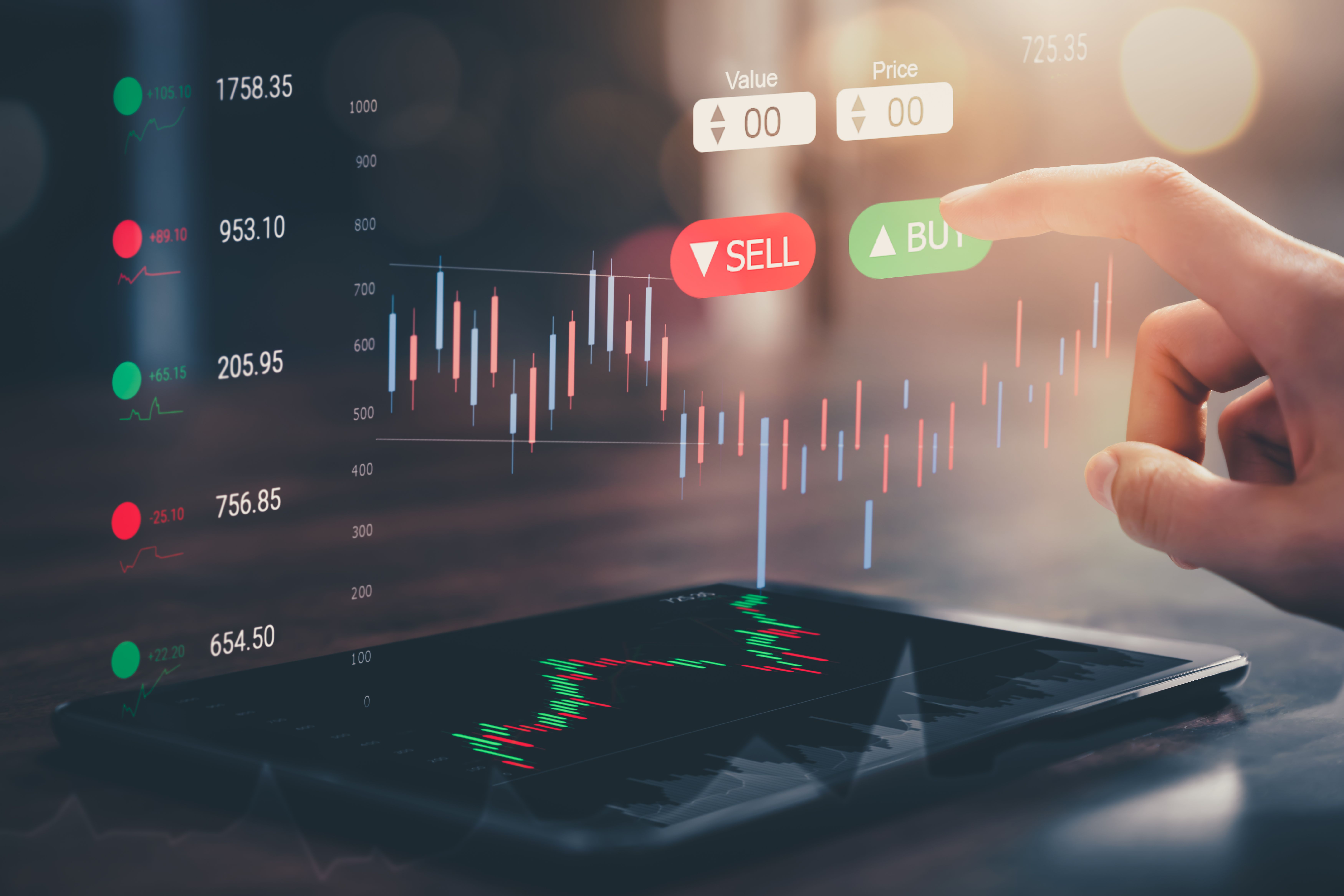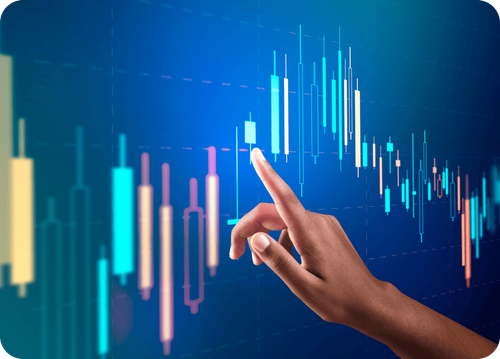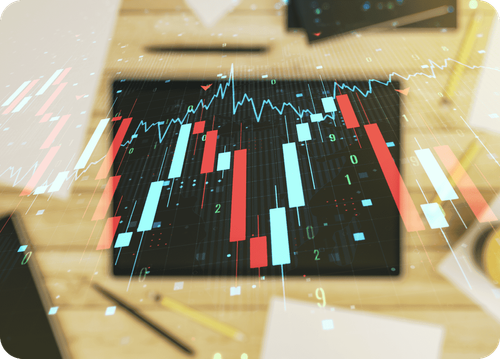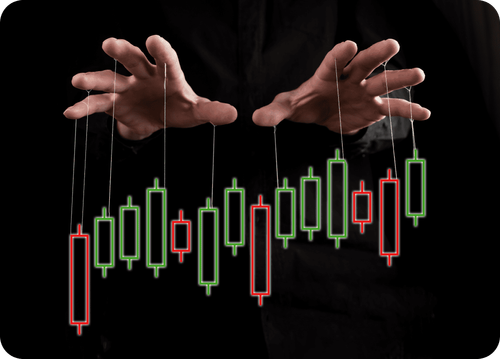- What are Forex Signals And How Are They Generated?
- Why Do People Use Forex Signals?
- Interesting Facts About South African Rand (ZAR)
- Manual vs Automated Forex Signals
- Paid vs Free Forex Signals
- Entry vs Exit Forex Signals
- How to Choose Forex Trading Signals
- Assess the Risk
- Assess the usability
- Trading Signals Are Time Critical
- Are Signals for Professionals?
- Who are Forex Signal Providers?
- Forex Trading Signals in Copy Trading
- How to Use Forex Signal Systems
What are Forex Signals And Do We Need Them?

What are forex signals? A forex signal system is a set of analyses that a forex trader uses to generate signals to determine whether to buy or sell a currency pair at a given time. Forex signal system decisions may be based on technical analysis charting tools or news-based events.
A signal system for trading forex usually contains several different signals that work together to create a buy or sell decision. Trading signal systems may be available for free, on a paid-for basis, or are developed internally by traders.
Regardless of your trading expertise, using Forex signals can significantly improve your trading performance. Furthermore, expert traders can utilise Forex signals to expand their profitability scope and experience.
As for novice traders, daily forex signal offers an advantage as they allow them to make a profit while still gaining knowledge about the world of trading with currencies. Using the signals, traders can also speed up the learning process because it helps them gain full insight about which trading options the signal is built on.
It’s very important to know that a trading signal is useful only when used at the right time, especially in a volatile market such as Forex. On the other hand, a signal can easily become useless if a trader gets it too late.
Key Takeaways
- Trading signals are generated either by a human analyst or trader or an automated platform supplied to a subscriber of the Forex signal service.
- Forex signals offer advantages as they allow traders to make a profit while still gaining knowledge about the world of trading with currencies.
- Copy trading allows for investing in other investors who conduct the trades for you, instead of trading currencies yourself.
- There are signal providers that offer a free trial period which you can subscribe to later if you’re pleased with the results.
- Always conduct backtesting to check how the computer would have done in various market circumstances.
What are Forex Signals And How Are They Generated?
Forex signals contain trade recommendations that tell you – the forex trader – which forex pair to trade, whether to buy or sell it, when to enter the market and how much profit you can aim to generate by following their specific ideas. While some forex traders choose to exclusively follow the trade ideas given by signals, others use these signals as part of their deeper analysis into the market to come up with their own, unique trading strategy.
As a forex trader, whichever way you choose to depend on forex signals, it helps to get a better understanding of what they are and how they can help you trade better.
Signals can be generated through technical analysis, fundamental analysis, or automated systems. Technical analysis involves studying price charts and using various indicators to predict future price movements. Fundamental analysis focuses on analysing economic data and market events to identify trading opportunities. Automated systems use algorithms and software to generate signals based on predefined criteria.
There are essentially two kinds of forex signals systems – automated and manual. Read on to understand what goes on in the background and how each kind of forex signal is derived.
Why Do People Use Forex Signals?
They allow traders to apply different strategies in the market. There are numerous technical, fundamental, and sentimental strategies, and forex signals allow traders to track market opportunities of all types. For instance, a technical trader will be able to track and take advantage of forex signals generated using fundamental analysis. In this way, traders can uncover high-quality, high probability opportunities across different assets.
Forex signals also save trading time. The FX market is open 24/5, and there are countless opportunities available round the clock. Many retail traders have other obligations that significantly limit their trading time. This means that they are exposed to limited trading opportunities. Forex signals can help traders to better utilise their trading time. What are signals in forex? A typical forex signal will provide comprehensive trading suggestions (entry, stop, and take profit price levels), and will require the trader to only perform the execution of the trade. In this way, traders are able to manage their trading times so as to take advantage of the best opportunities in the market.

While they have practical benefits, it is important to understand how to use forex signals effectively for online trading. Forex signals are also subject to market risks, and there are some tips that can help limit them. It is vital to first determine your risk tolerance, which will entail only risking what you can afford to lose as well as the appropriate lot sizes for different forex signals. For instance, high volatility assets, such as gold, should be traded with smaller lot sizes, whereas less volatile assets, such as the EURCHF currency pair, can be traded with larger lot sizes. It is also important to avoid executing forex signals during the release of high-impact data. Overall, traders should ensure they stick rigorously to their trading plan even when trading with the best forex signals.
Interesting Facts About South African Rand (ZAR)
The rand (abbreviated ZAR or R) is the national currency of South Africa. A single rand consists of 100 cents, and the currency is available as both coins and banknotes. The South African Reserve Bank (SARB) in Pretoria is the country’s central bank and is responsible for issuing and distributing South Africa’s money.
The SARB celebrated its 100th birthday in 2021, so it’s the oldest central bank on the continent. Since introducing the rand in 1961, the SARB has controlled the design and creation of coins and banknotes. It prints the money locally through its subsidiary, the South African Bank Note Company (SABN).
Between 1961 and 1989, some smaller coin denominations, like the half-cent coin and the two-and-a-half cent coin, went out of circulation. The original banknotes have also been re-released several times over the years.
1. Rand banknotes feature multiple languages.
The South African Reserve Bank (SARB) released the upgraded Mandela banknotes and fourth decimal coin series on 3 May 2023.
The upgraded banknotes and fourth decimal coin series have new designs and enhanced security features that utilise the latest technological advancements to protect the integrity of our currency and maintain public trust.
The upgraded banknotes continue to pay homage to South Africa's first democratically elected president, Nelson Mandela, with his portrait featured on the front of all five denominations while the Big 5 animals are depicted as a family. The fourth decimal coin series is based on the theme of deep ecology, which celebrates the interconnectedness of humans and other living organisms as an integral part of the environment.
2. The first currency in South Africa was Dutch.
In the 1600s, traders from the Netherlands brought the Dutch guilder currency to South Africa, where it became the primary currency for many years. In 1782, they brought the first paper money into Cape Town in the form of the rix dollar. Dutch currency was commonplace in South Africa until Great Britain took control of the region and introduced the pound and the shilling. The first locally issued South African pound appeared in 1910 and remained the official currency until 1961.
3. The SARB allows old currency banknotes to remain in circulation.
Even denominations that aren’t currently in circulation are still legal tender, no matter how old they are. If you come across any 2- or 5-rand banknotes, for example, the central bank will exchange them for face value.
The same goes for the Big Five series from 1992-1994, even though the 2005 reissue of these banknotes includes additional security features.
4. The R 100 banknote features the Cape buffalo
The back of the note features the Cape Buffalo and is written in Sepedi: PANKA YA RESEFE YA AFRIKA BORWA and in Xitsonga: BANGINKULU YA.
5. The rand takes its name from the landscape.
The name for South African money comes from the word “Witwatersrand.” Rand is the word for “ridge” in Dutch and Afrikaans, so this translates to “white waters’ ridge.”
This is the name of the high escarpment where Johannesburg sits, and it also happens to be the region where the majority of South African gold comes from.
6. The rand is legal tender throughout the Southern African Common Monetary Area.
South Africa isn’t the only place you can spend South African currency. You can also use the rand in Eswatini, Lesotho, and Namibia. Each of the four countries issues its own version, but they all have the same value and are legal tender throughout the Southern African Common Monetary Area.
Previously, Botswana was part of this currency union, but it left in 1976 when it got rid of the Rand and introduced the Pula so it could have more control over its finances.
Manual vs Automated Forex Signals
Automated signals are created by professional analysts and/or traders in conjunction with code developers, and use algorithms to recommend trade ideas based on historical trends on how the market moves. Alternatively manual forex trading signals are generated by professional analysts and/or traders who use technical indicators along with fundamental analysis of the markets to identify potential trade recommendations. This includes examining past information about the price and trend in a specific forex pair.
Paid vs Free Forex Signals
This category is based upon the price of a signal service operator. Just as their name states, free Forex signal providers offer signals without requesting payment, while paid Forex signal providers offer signals but require money for that service. The latter category usually requests one-time payments or monthly subscriptions.
Entry vs Exit Forex Signals
Entry and exit indicators are technical analysis-based tools that provide signals to help traders identify the best opportunities to buy or sell a currency pair. These indicators are often based on price movements, volume, moving averages or other technical indicators. They help traders make data-backed decisions on the right time to enter or exit a trade to maximise profit and minimise losses.
How to Choose Forex Trading Signals
One of the most important tools as far as forex trading is concerned is forex signals, and these are offered by various kinds of signals’ service providers. In this digital age, finding a good forex signals provider can get a little overwhelming as you can be spoilt for choice when you do a quick online search. How do you trust the information being displayed on a provider’s website or the claims they make? Is it worth investing your time and money based solely on what each service provider states, or should you dig a little deeper? If so, how do you do this and what do you need to look for?
This guide can help you understand the different kinds of options available in the market so that you can make an informed decision when it comes to picking the right service that you require in order to develop your skills as a trader.
Assess the Risk
Scams are very common in the market, with claims like “double your investment in 24 hours”. Avoid these, rather choose a forex signal provider who has a great reputation and is reliable.
Be wise about investing in one
Avoid putting all your savings into forex, no matter how tempting it may be. Doing this puts you in a very vulnerable position, and you could possibly lose everything. Start with small funds and work your way up.
Assess the usability
Before buying and forex signals, go through all the relevant information and each of them, this process can help you select the right trading strategies. Check reviews as well, they can offer incredibly valuable information and assist you with making the correct decision.
Trading Signals Are Time Critical
Trading signals are time sensitive. If you are not getting or noticing the signals in time, in the next few seconds they would be inactive. This means, you have to be proactive and choose a trading partner that can provide you the signals at the right moments. With the best trading signals telegram, it’s possible to grab the opportunities instantly. If you are on Forex, you should learn the use of advanced tools. It makes life easy – trading becomes fun.
Are Signals for Professionals?
Professional traders use Forex alerts as they help them increase the profitability of their trades. Moreover, alerts save traders from potential losses; professional traders use them to avoid losses. Forex alerts can be used by beginners and professionals as there’s no limit to use; however, the dependency and reliance on alerts matter.
Trading signals purpose is purely to help traders make more accurate and dependable predictions for future developments in the Forex market. It is another way of helping traders to learn how the market works by simply knowing more about current trends. Foreign exchange trading signals help to give you an information advantage over any market participant that exists.
Who are Forex Signal Providers?
While there are many quality signal services, some stand out more than others because they offer everything a trader needs, but especially the Trading Signals, Market Analysis and all major updates. When you have such free and easy access to the top trading tools, it puts you at a better chance of taking your career to the next level and having sight of profitable forex signals.
Dozens of forex brokers offer support for signal providers via third-party platforms. To help you sort through the noise, we created a list of forex brokers that offer trading signals and ranked them based on our own independently researched ratings:
- IG - Signal Centre, Autochartist and MetaTrader Signals
- Saxo Bank - Autochartist full integration
- Interactive Brokers - Trading Central (available in Pro data bundle)
- CMC Markets - Emerging and Breakout patterns
- FOREX.com - Trading Central and MetaTrader Signals
- City Index - Trading Central and MetaTrader Signals
- eToro - Human-generated signals from popular investors
Forex Trading Signals in Copy Trading
Trading forex signals came before copy trading. When it comes to forex trading signals, traders can choose whether to execute a trade or not. Whilst copy trading is automatic, you choose a trader and their positions will be reflected in your trading account.
Copy trading allows first time traders to familiarise themselves with the financial markets and gain confidence to trade. It enables experienced traders to take part in the market even when they are too busy and cannot invest the valuable time and research needed in order for them to trade.
How to Use Forex Signal Systems
A forex signal system is a set of analyses used by foreign exchange traders to guide their forex strategy and actions. Now that you know what are signals in forex? There are two types of systems - manual and automated.
For the manual system the trader will wait for email signals or Telegram app forex signals or signals sent out in some other way and place the trades themselves. Automated, a trading bot or algorithm places the trades automatically though software connected to the trading account.
Forex Signals can cover currency pairs, commodities, or stock prices. These signals can be communicated to you through various channels, such as email, SMS, text, and even social media platforms. They are meant to be on-the-fly info to quickly incorporate in your trading strategy.
Lloyd has been trading, investing and teaching about financial markets for over a decade. He has a thorough understanding of financial services provider legislation as well as investment asset classes and categories. Lloyd is a certified RE5 representative and holds a COB Investment certificate from the Moonstone Business School of Excellence.
Copy trading is where followers automatically copy the trades of successful traders. Trades are automatically executed in the follower’s account. This can be an effective way for people to diversify their portfolios and gain exposure to a wider range of markets and trading strategies. It might also help followers improve their trading performance by learning from the successes of more experienced traders.
Copy trading and trading signals are two different approaches to trading that can be used separately or in combination.
Many beginners assume using signals is a quick fix for success, and will lead to profit forex signals but this simply is not the case. Signals provide important information about the markets but cannot entirely negate the risks associated with foreign exchange trading. Several factors need to be considered before you start using the services of signal providers.
- It is essential to understand no two signal providers are created the same, with some offering higher-quality services than others. The signals’ accuracy can greatly impact one’s overall results. Certain providers include only basic information about the call to action along with the TP and SL levels. Others deliver detailed charts and commentary that could prove to be of further use to traders. The bottom line is you need to figure out exactly what you are signing up for before you resort to the signals supplied by a given provider.
- Interpret the market conditions on your own. It is important not to forget that signals are merely recommendations. Using them is no excuse for the absence of a proper understanding of the market environment. Take the time to inform yourself about current market conditions and their limitations before you act on the signals you receive.
- Give a thought to your individual risk tolerance. Foreign exchange trading is a volatile venture, even more so when one does it on margin with leverage. There is always the possibility of losing large amounts of capital in two shakes of a lamb’s tail.
The huge swings inherent to pairs like XAU/USD, for example, can wipe out your entire balance in a flash when you leverage your positions. A trader should take some time to evaluate what risk level they are comfortable with before they act on a trading signal.
The goal of trading in the forex market is to generate profits, but sometimes traders fall victim to scams due to their lack of careful selection when it comes to forex signals. What is a forex signal? In essence, forex signals consist of analysis and data that provide buy or sell orders for specific currency pairs, along with recommended stop loss and take profit levels.
These signals are often promoted by sellers on various social media platforms, such as Telegram, WhatsApp, Line, Facebook, Twitter, and Instagram, as well as through email and online trading forums.
Similar to sellers in any market, forex signal providers employ various marketing tactics to attract customers. They may claim their signals are 100% reliable, guarantee anti-loss (MC), or ensure profits.
However, it is important not to be hasty or impulsive, as these claims are often associated with forex signal scams that are prevalent today. It is crucial to understand that no forex signal can be 100% accurate, and falling for such claims can lead to potential scams.
To avoid falling prey to forex signal scams, consider the following five key points:
- Exercise caution and avoid immediate trust, especially in the face of aggressive marketing.
- Pay close attention to price quotes and evaluate their reasonableness.
- Stick to a risk-reward ratio in your trading approach to ensure a balanced strategy.
- Differentiate between trading forex and binary options, as they have distinct characteristics and risks.
- Adjust your trading decisions and strategies based on the capital you have available.
It is natural to want to be able to achieve good results in trading with minimal effort and expense, like with free forex signals. People also prefer to avoid making their own mistakes and will instead rely on someone else's thoughts and opinions. A lot of beginner traders will aim to achieve profit in the market as quickly and effortlessly as possible.
This is why many traders search Google for “forex signals free” or other similar queries. The majority of these traders will be reluctant to pay for premium signals, as they hope to gain profits without any expenditure.
However, it is important to understand that there aren't many good free forex trading signals today, whether you are looking for free forex trading signals in SA, the USA or any other location.
At first glance you may think a forex signal is short and standard. However, forex signals are filled with information in just a few lines.
The following information may be shown:
- Exact or approximate entry, exit and stop loss figures for trades on one or more currency pairs.
- Supporting graphs and/or analysis for the signals.
- A trading history showing the number of pips profit/loss per month and/or the risk/reward ratio and actual trades. Sometimes (especially in the case of forex robots) this may be shown as back-tested results.
Read also
BCS Markets SA (Pty) Ltd. is an authorized Financial Service Provider and is regulated by the South African Financial Sector Conduct Authority (FSP No.51404). BCS Markets SA Proprietary Limited trading as BROKSTOCK.
The materials on this website (the “Site”) are intended for informational purposes only. Use of and access to the Site and the information, materials, services, and other content available on or through the Site (“Content”) are subject to the laws of South Africa.
Risk notice Margin trading in financial instruments carries a high level of risk, and may not be suitable for all users. It is essential to understand that investing in financial instruments requires extensive knowledge and significant experience in the investment field, as well as an understanding of the nature and complexity of financial instruments, and the ability to determine the volume of investment and assess the associated risks. BCS Markets SA (Pty) Ltd pays attention to the fact that quotes, charts and conversion rates, prices, analytic indicators and other data presented on this website may not correspond to quotes on trading platforms and are not necessarily real-time nor accurate. The delay of the data in relation to real-time is equal to 15 minutes but is not limited. This indicates that prices may differ from actual prices in the relevant market, and are not suitable for trading purposes. Before deciding to trade the products offered by BCS Markets SA (Pty) Ltd., a user should carefully consider his objectives, financial position, needs and level of experience. The Content is for informational purposes only and it should not construe any such information or other material as legal, tax, investment, financial, or other advice. BCS Markets SA (Pty) Ltd will not accept any liability for loss or damage as a result of reliance on the information contained within this Site including data, quotes, conversion rates, etc.
Third party content BCS Markets SA (Pty) Ltd. may provide materials produced by third parties or links to other websites. Such materials and websites are provided by third parties and are not under BCS Markets SA (Pty) Ltd.'s direct control. In exchange for using the Site, the user agrees not to hold BCS Markets SA (Pty) Ltd., its affiliates or any third party service provider liable for any possible claim for damages arising from any decision user makes based on information or other Content made available to the user through the Site.
Limitation of liability The user’s exclusive remedy for dissatisfaction with the Site and Content is to discontinue using the Site and Content. BCS Markets SA (Pty) Ltd. is not liable for any direct, indirect, incidental, consequential, special or punitive damages. Working with BCS Markets SA you are trading share CFDs. When trading CFDs on shares you do not own the underlying asset. Share CFDs are complex instruments and come with a high risk of losing money rapidly due to leverage. A high percentage of retail traders accounts lose money when trading CFDs with their provider. All rights reserved. Any use of Site materials without permission is prohibited.





